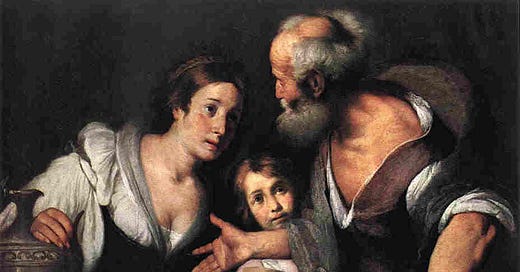The God of No Account
Reflecting on the Third Sunday after Pentecost: Three Days after Sunday (Year C)
Scripture (semicontinuous)
Psalter: Psalm 75
Old Testament: 2 Kings 4:1-7
Gospel: Matthew 10:16-25
Scripture (complementary)
Psalter: Psalm 140
Old Testament: Jeremiah 23:16-22
Gospel: Matthew 10:16-25
___
Prayer
God our refuge and hope, when race, status, or gender divide us, when despondency and despair haunt and afflict us, when community lies shattered: comfo…
Keep reading with a 7-day free trial
Subscribe to Faith Seeking Understanding to keep reading this post and get 7 days of free access to the full post archives.




